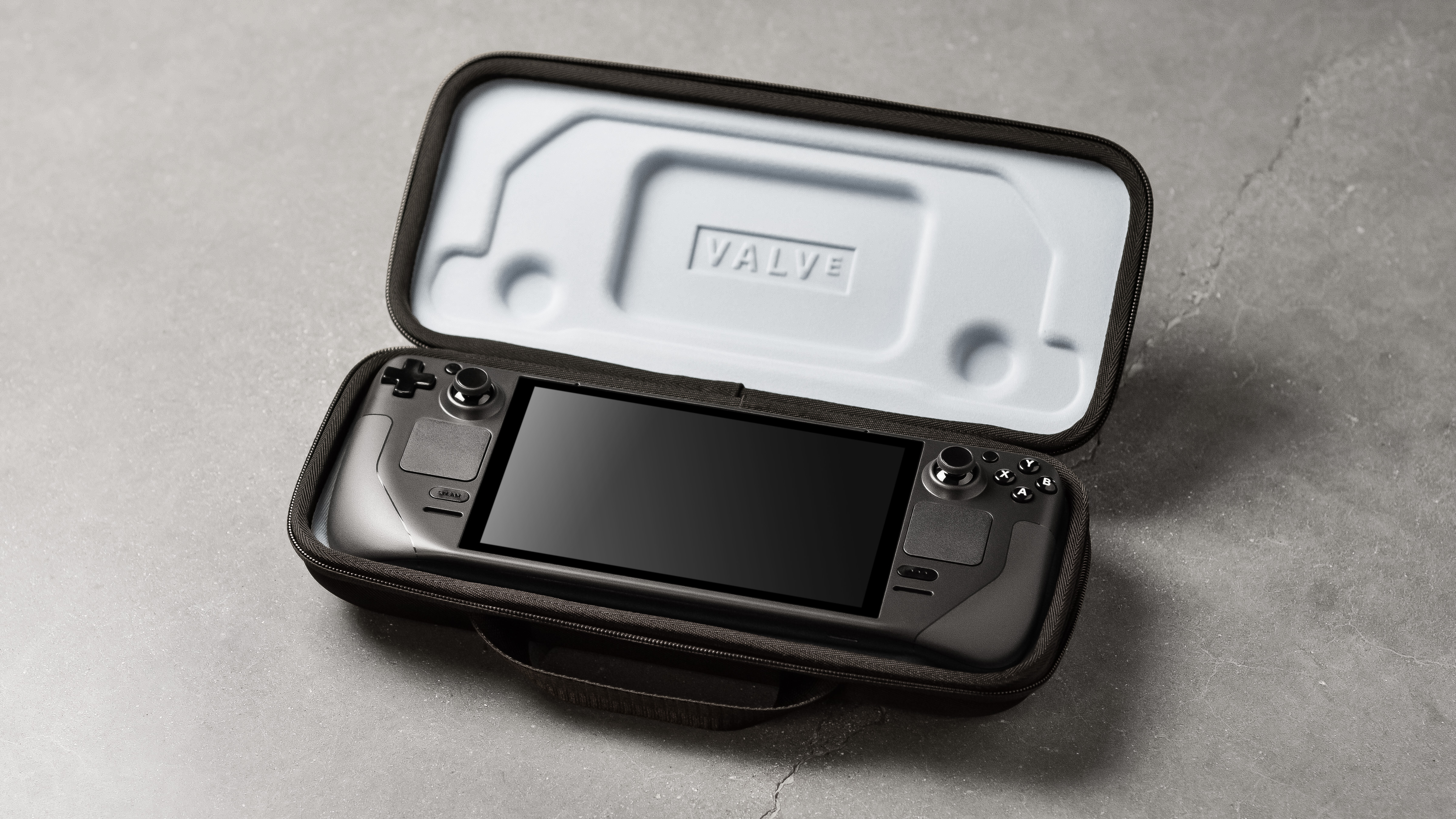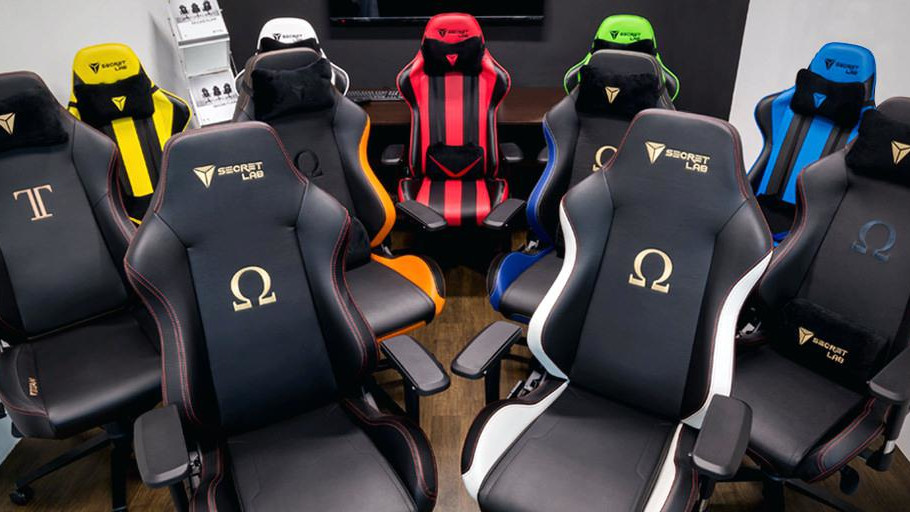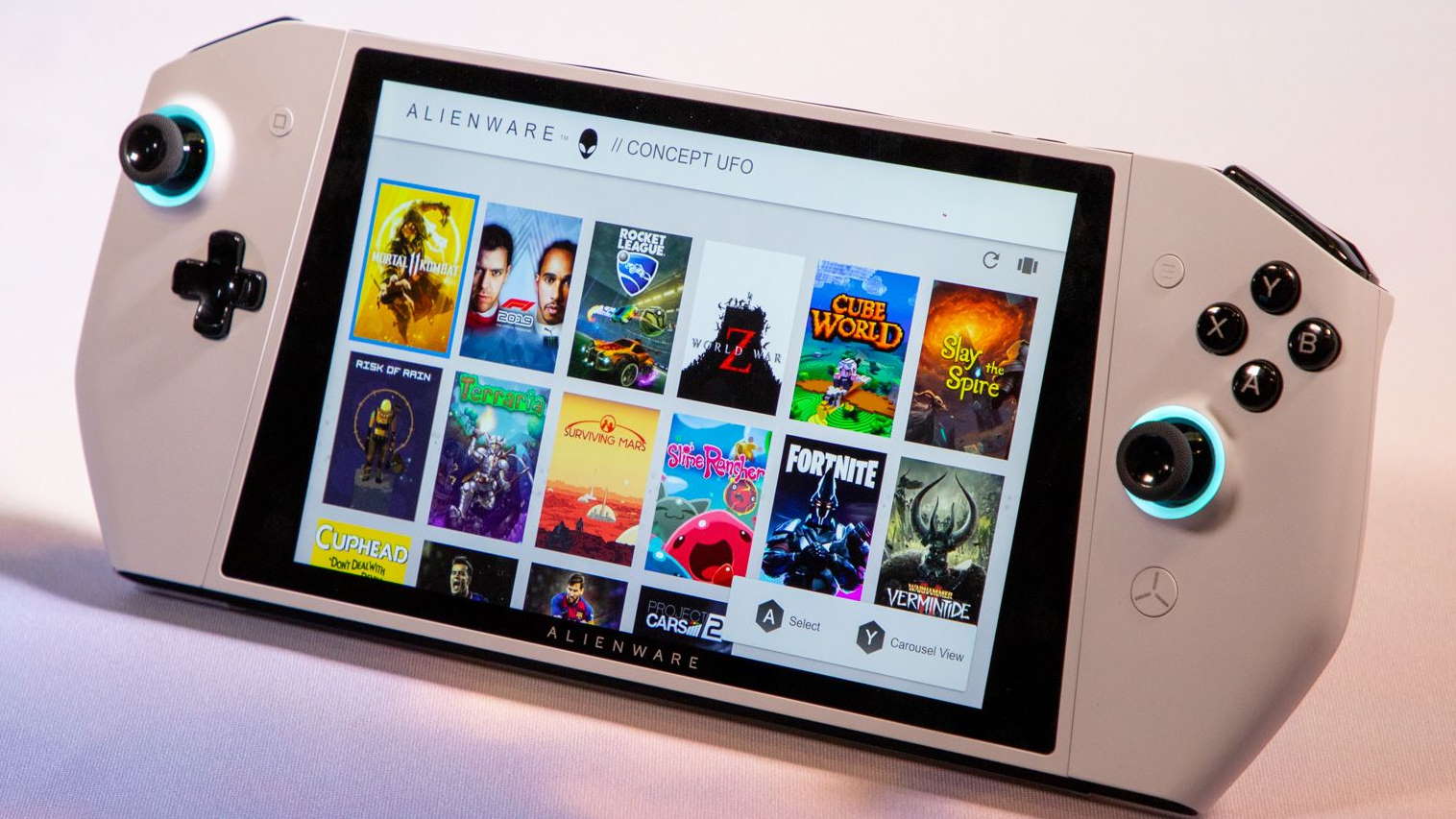Gabe wants other PC makers to create their own Steam Decks
"Establishing a product category... that's going to have long-term benefits for us."

Valve wants the Steam Deck to be the starting point for a whole new handheld PC ecosystem. Speaking to IGN Gabe Newell has stated that the relatively low price point for the Deck was "painful" but "critical", but he also goes on to state his expectations that it will be the jumping off point for establishing a product category that benefits Valve in the long term.
That means he hopes other PC manufacturers are going to get on board the Deck train, and release their own versions of the handheld PC, likely hoping they're running the bespoke mobile version of SteamOS Valve has created for it.
"Our view is, If we're doing this right, that we're going to be selling these in millions of units," says Newell. "And it's clearly going to be establishing a product category that ourselves and other PC manufacturers are going to be able to participate in. And that's going to have long-term benefits for us. So that's sort of the frame in which we're thinking about this."
Those "long-term benefits" then might explain one of the biggest surprises about the Steam Deck: its price. When other handheld gaming PCs are costing upwards of $1,000, the entry point for the 64GB Deck is just $399. Of course, you are going to want one of the NVMe-powered 256GB or 512GB versions if you're serious about playing on the go, and they cost $529 and $649 respectively, but that's still an impressive price.

Best chair for gaming: the top gaming chairs around
Best gaming desk: the ultimate PC podiums
Best PC controller: sit back, relax, and get your game on
But if Valve is looking at this to establish a product category that other manufacturers then build off, having a popular, affordable initial device is the way to go.
And I can definitely see it happening. Valve may struggle to keep up with demand, after all we are in the middle of a chip supply crisis right now, and there are a lot of AMD APUs that Microsoft and Sony want TSMC to make for their own consoles, but I'd wager there's going to be a huge backlog on that pre-order queue.
That could be all the proof the likes of MSI and Asus need to start making their own Decks. Asus has already gone all-in on gaming phones, so this doesn't feel like much of a step for it to take. But the likelihood is that both of those companies will see the limitations of the Steam Deck and want more. I can see an MSI or ROG Deck being sold for upwards of $1,000 like the current handheld PCs, and that is going to cut down the number of potential buyers real quick.
The biggest gaming news, reviews and hardware deals
Keep up to date with the most important stories and the best deals, as picked by the PC Gamer team.

We've already seen Dell and Alienware has its own ideas about handheld gaming with the UFO prototype, so I can also see that given a lick of paint, SteamOS installed onto it, and it shoved out the door, again for a premium price.
Whether any other PC manufacturer is willing to go for the same sort of "painful" pricing Valve was willing to stick to the Deck is up for debate. I'd suggest it's unlikely, and it also feels like that could quickly dull the enthusiasm for the handheld PC ecosystem.
But that's just based on what happened with the original Steam Machines Valve tried to launch all those years ago. Itself a SteamOS-based pseudo PC console, then built for the living room, but another product category Valve tried to push out to other PC manufacturers.
Things could be different this time around, however, and Valve is certainly looking to prove the Deck's value by going it alone first, before bringing other system builders into the mix. Hopefully the Deck ends up being more Index than Steam Machine.

Dave has been gaming since the days of Zaxxon and Lady Bug on the Colecovision, and code books for the Commodore Vic 20 (Death Race 2000!). He built his first gaming PC at the tender age of 16, and finally finished bug-fixing the Cyrix-based system around a year later. When he dropped it out of the window. He first started writing for Official PlayStation Magazine and Xbox World many decades ago, then moved onto PC Format full-time, then PC Gamer, TechRadar, and T3 among others. Now he's back, writing about the nightmarish graphics card market, CPUs with more cores than sense, gaming laptops hotter than the sun, and SSDs more capacious than a Cybertruck.

